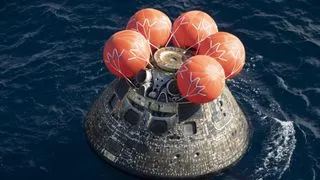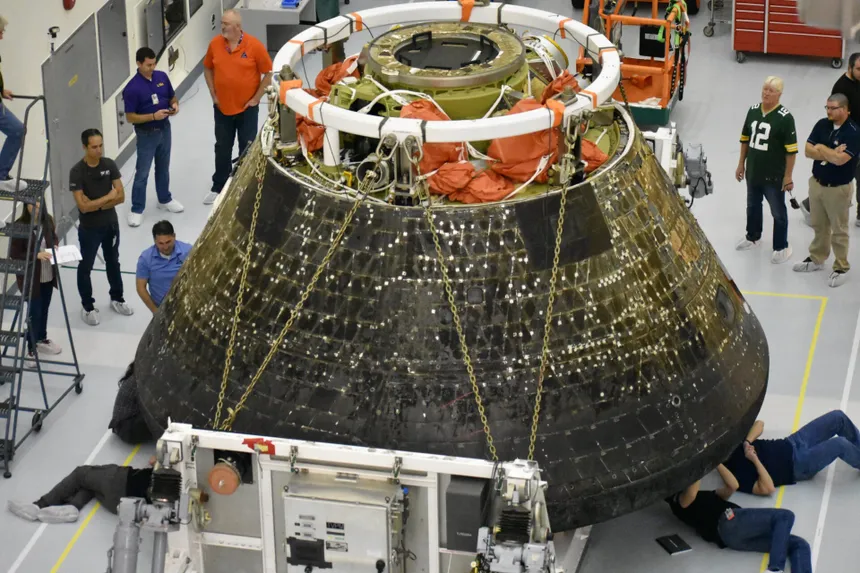NASA’s much-anticipated Artemis mission, aimed at sending astronauts to the moon, is facing unexpected hurdles due to concerns over the heat shield of its Orion crew module. A recent report by NASA’s inspector general highlights the critical issues that need to be addressed before crewed missions can take off, putting the ambitious program’s timeline at risk.
The inspector general’s report is based on the findings of the Artemis I mission, which was an uncrewed test flight of the Orion capsule in 2022. The mission revealed that the heat shield of the capsule, designed to protect it during reentry, wore away more than expected in over 100 locations. NASA had previously acknowledged the issue, but the report suggests that the problem is more serious than initially thought.
The heat shield is a critical component of the Orion capsule, as it is responsible for protecting the spacecraft during reentry. The report states that the heat shield’s performance was “demonstrated to be worse than expected,” and that NASA must take further action to address the issue. The inspector general’s report highlights the need for NASA to modify the heat shield or adjust the reentry trajectory to reduce the damage.
In addition to the heat shield concerns, the report also identifies issues with the separation bolts of the crew module and the electrical power system on the capsule. These problems are not as severe as those with the heat shield, but they still need to be addressed to ensure the safety of future crews.

NASA’s Artemis Mission Faces Setbacks as Heat Shield Concerns Emerge
NASA is already taking steps to address the issues, including modifications to the heat shield and adjustments to the reentry trajectory. However, the report suggests that further testing is needed to ensure that the capsule is safe for crewed missions.
The inspector general’s report comes at a challenging time for NASA as it prepares to launch the Artemis II mission, which is scheduled for September 2025. NASA recently announced a delay in the mission’s timeline, pushing the launch date back from November 2024. The report’s findings may further complicate the mission’s timeline and budget.
NASA’s Associate Administrator for Exploration Systems Development Mission Directorate, Catherine Koerner, addressed the report’s findings, acknowledging that discovering and resolving issues is a natural part of the design-test-fix process. She emphasized that NASA was already aware of the issues and was working to fix them before the report was released.
The report’s findings have sparked a debate within NASA and the media about the agency’s ability to manage its programs and balance safety concerns with the need to meet ambitious timelines. As NASA continues to work on addressing the issues, it is clear that the Artemis mission faces significant challenges before it can successfully send astronauts to the moon.
In the meantime, NASA is working to mitigate the risks and ensure that its crewed missions are safe and successful. The agency’s commitment to safety and its willingness to address challenges head-on are essential for the success of the Artemis mission and the continued advancement of space exploration.








































